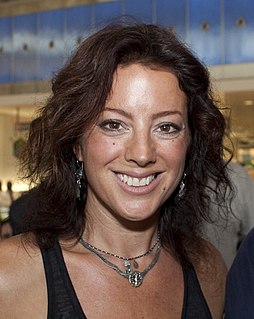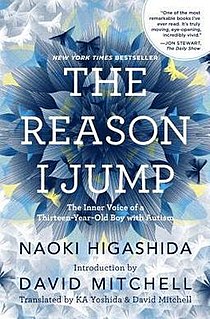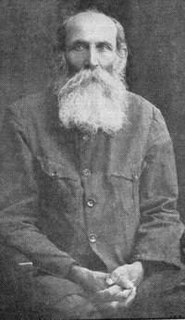A Quote by Brian Greene
How can a speck of a universe be physically identical to the great expanse we view in the heavens above?
Related Quotes
In this model, the sun is a very tiny speck of dust indeed-a speck less than a three-thousandth of an inch in diameter ... Think of the sun as something less than a speck of dust in a vast city, of the earth as less than a millionth part of such a speck of dust, and we have perhaps as vivid a picture as the mind can really grasp of the relation of our home in space to the rest of the universe.
In the older view the goddess Universe was alive, herself organically the Earth, the horizon, and the heavens. Now she is dead, and the universe is not an organism, but a building, with gods at rest in it in luxury: not as personifications of the energies in their manners of operation, but as luxury tenants, requiring service. And Man, accordingly, is not as a child born to flower in the knowledge of his own eternal portion but as a robot fashioned to serve.
You work here [on the farm] simply without philosophizing; sometimes the work is hard and crowded with pettiness. But at times you feel a surge of cosmic exaltation, like the clear light of the heavens... . And you, too, seem to be taking root in the soil which you are digging, to be nourished by the rays of the sun, to share life with the tiniest blade of grass, with each flower; living in nature's depths, you seem then to rise and grow into the vast expanse of the universe.
Landscapes of great wonder and beauty lie under our feet and all around us. They are discovered in tunnels in the ground, the heart of flowers, the hollows of trees, fresh-water ponds, seaweed jungles between tides, and even drops of water. Life in these hidden worlds is more startling in reality than anything we can imagine. How could this earth of ours, which is only a speck in the heavens, have so much variety of life, so many curious and exciting creatures?
Everyone is aware of the fact that visual and auditive perspective are identical; the only difference being that they are created and perceived by two physically different organs, the eye and the ear. How often the playing of a great master makes us think of a picture with a deep background and varying planes; the figures in the foreground almost leap out of the frame whereas in the background the mountains and clouds are lost in a blue haze.




































